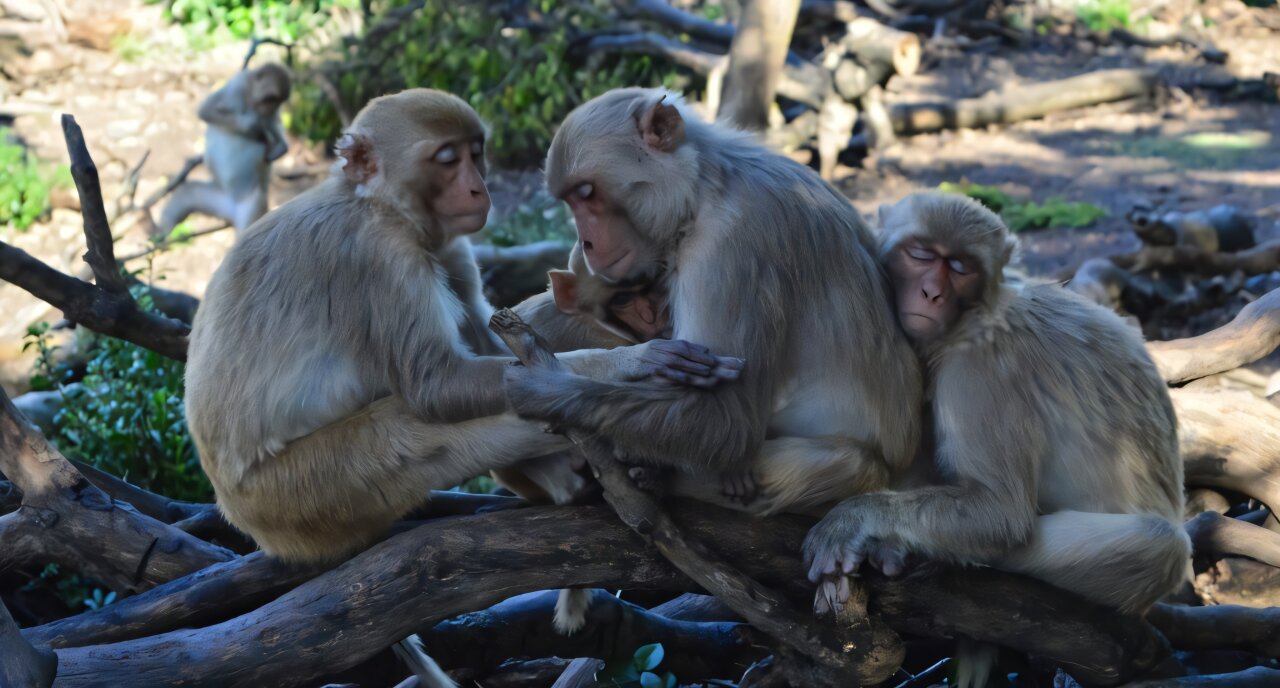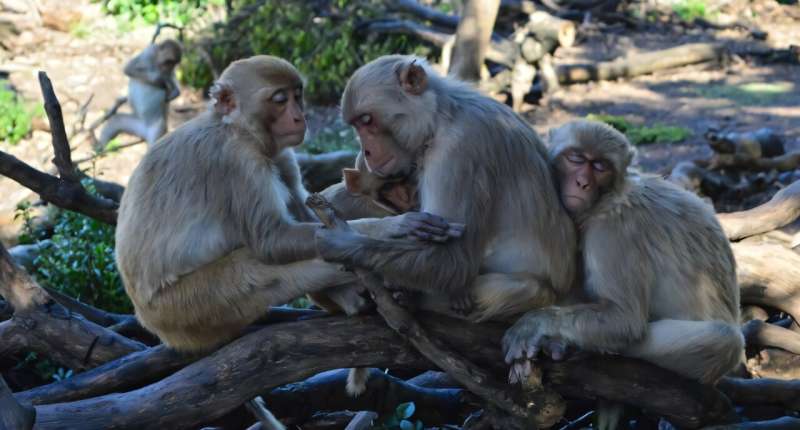

Becoming less sociable protects older monkeys from getting ill, new research shows.
Many animals, including humans, are known to experience “social aging”—reductions in their number of social connections as they get older. But why this happens remains a mystery.
The new study, led by the universities of Exeter and Edinburgh, used long-term data on rhesus macaques on Cayo Santiago—known as Monkey Island.
They found that older macaques are likely to suffer less from infectious disease, mostly because of their smaller social networks.
The study, “Social aging can protect against infectious disease in a group-living primate,” is published as part of a special issue of Philosophical Transactions of the Royal Society B, guest edited by Professor Lauren Brent from the University of Exeter.
“Social ties bring huge benefits to a vast range of species—but sociality also comes with costs, including infectious disease risk,” said Dr. Erin Siracusa, from Exeter’s Center for Research in Animal Behavior.
“This cost-benefit ratio can change across individuals’ lifespans, which may drive changes in social behavior.
“Older individuals may be more susceptible to diseases—but once we accounted for that in our data, we found that older macaques suffered lower infection costs than their younger counterparts.
“Our findings suggest a powerful reason why many animals, including humans, might reduce their social connections as they age.”
The benefits macaques gained from social aging depended on the diseases in question.
Unsurprisingly, the benefit was strongest when diseases were highly infectious and were more severe for older macaques.
Dr. Matthew Silk, from the University of Edinburgh, said, “Our results point to illness potentially helping to explain why ‘social aging’ evolves—something we are keen to test in future research.”
The special issue of the journal is called “Understanding age and society using natural populations.”
More information:
Erin R. Siracusa et al, Social ageing can protect against infectious disease in a group-living primate, Philosophical Transactions of the Royal Society B: Biological Sciences (2024). DOI: 10.1098/rstb.2022.0462
Provided by
University of Exeter
Citation:
Keeping fewer friends protects aging monkeys from diseases, study finds (2024, October 28)
retrieved 28 October 2024
from https://phys.org/news/2024-10-friends-aging-monkeys-diseases.html
This document is subject to copyright. Apart from any fair dealing for the purpose of private study or research, no
part may be reproduced without the written permission. The content is provided for information purposes only.